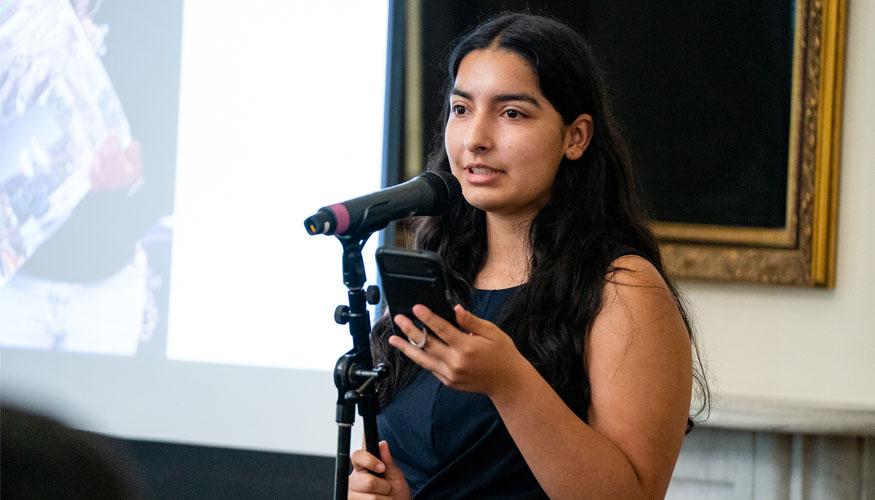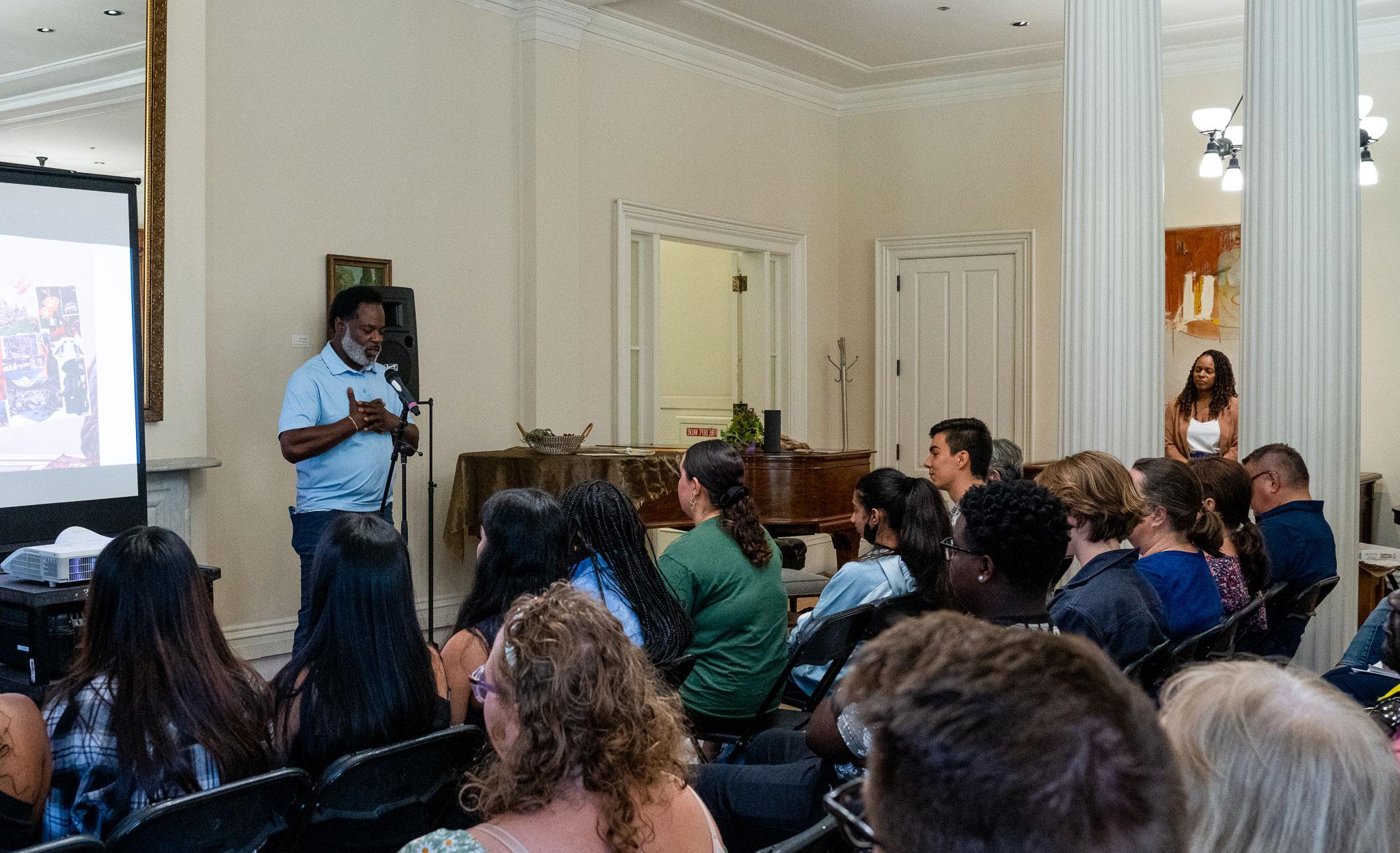Building an inclusive future
The Mills Institute at Northeastern
Advancing women’s leadership. Championing gender equity and racial justice.

our Vision
Expanding social impact
The Mills Institute at Northeastern University supports transformative learning, advocacy, and research for women, gender nonbinary individuals, and historically marginalized communities.
Building on the legacy of Mills College, the institute offers programming that advances educational access, equity, social justice, and women’s leadership.
We forge partnerships with local and global organizations and engage experts in gender and racial justice to be a force for change.

Creating Opportunities
Our goals
1
Advance women’s leadership and gender and racial justice by leveraging local, national, and global expertise in collaboration with Northeastern students, faculty, researchers, alumni, and community partners.
2
Build long-term partnerships with community organizations, industry leaders, government, and other education institutions to create impactful solutions that address gender and racial inequities.
3
Support innovative research and scholarship programs that address the underrepresentation of women; nonbinary individuals; Black, indigenous, and people of color (BIPOC); and other marginalized identities across all disciplines.
4
Create leadership pipeline programs that empower first-generation students and underrepresented communities for professional success.

local impact, global reach
Sharing new knowledge, experience, and solutions
The Mills Institute offers students, faculty, alumni, and partners the opportunity to create positive social innovations in Oakland, the Bay Area, and beyond. Leveraging Northeastern’s multidisciplinary institutes and research centers; resources in the university’s Office of Institutional Diversity, Equity, and Inclusion; and the experience of external gender and racial justice leaders, participants explore solutions to equity issues and systemic barriers to progress.
our history
The Mills College legacy
Founded in 1852 as an undergraduate college for women, Mills was recognized as one of the most diverse and inclusive colleges in the country with a deep social justice mission. Upon the merger between Mills and Northeastern in 2022, the Mills Institute was formed to carry on the legacy of positive social impact.
| 1852 | Mills College is founded as the Young Ladies’ Seminary in Benicia, California. |
| 1865 | Missionaries Susan and Cyrus Mills buy the seminary and rename it Mills College. |
| 1871 | The seminary is moved to the Oakland foothills, where a new campus has been purchased and Mills Hall is built. |
| 1885 | Mills is chartered as the first women’s college west of the Rockies. |
| 1920 | The Graduate Division opens, offering programs to both women and men. |
| 1926 | Mills launches the first laboratory school west of the Mississippi for aspiring teachers. |
| 1974 | Mills becomes the first women’s college to offer a computer science major. |
| 1990 | The trustees reaffirm their commitment to educating women following a campus-wide strike to remain all-women at the undergraduate level. |
| 2001 | Mills becomes the first women’s college to offer a bachelors-to-master’s BA/MBA accelerated degree program. |
| 2014 | Mills launches the first transgender and nonbinary admissions policy in the country at a women’s college. |
| 2022 | Mills merges with Northeastern University; the Mills Institute is established. |
OUR PEOPLE
Leadership
Located on Northeastern’s Oakland campus, the institute is led by Executive Director, Christie Chung, PhD, in collaboration with an advisory board and a leadership council. The team includes community partners from Oakland and the Bay Area, as well as experts in women’s leadership and gender and racial justice.
For more information about the Mills Institute, please call 510.430.3232 or email mills_institute@northeastern.edu.
Contact Us